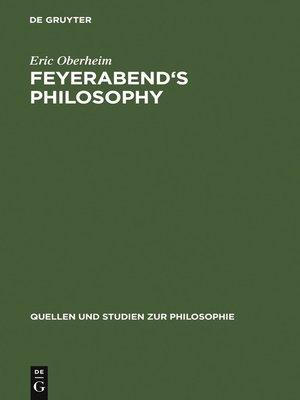
Sign up to save your library
With an OverDrive account, you can save your favorite libraries for at-a-glance information about availability. Find out more about OverDrive accounts.
Find this title in Libby, the library reading app by OverDrive.



Search for a digital library with this title
Title found at these libraries:
| Library Name | Distance |
|---|---|
| Loading... |
Paul Feyerabend ranks among the most exciting and influential philosophers of science of the twentieth century. This reconstruction of his developing ideas combines historical and systematic considerations.
Part I examines the three main influences on Feyerabend's philosophical development: Wittgenstein's later philosophy, Popper critical rationalism and Ehrenhaft's experimental effects.
Part II focuses on Feyerabend's development and use of the notion of incommensurability at the heart of his philosophical critiques, and investigates his relation to realism. Feyerabend initially developed the notion of incommensurability from ideas he found in Duhem. He used the notion of incommensurability to attack many different forms of conceptual conservativism in philosophy and the natural sciences. He argued against many views on the grounds that that they would constrain the freedom necessary to develop alternative points of view, and thereby hinder scientific advance. Contrary to widespread opinion, he was never a scientific realist.
Part III reconstructs Feyerabend's pluralistic conception of knowledge in the context of his pluralistic philosophical method. Feyerabend was a philosophical pluralist, who practiced pluralism in pursuit of progress.







